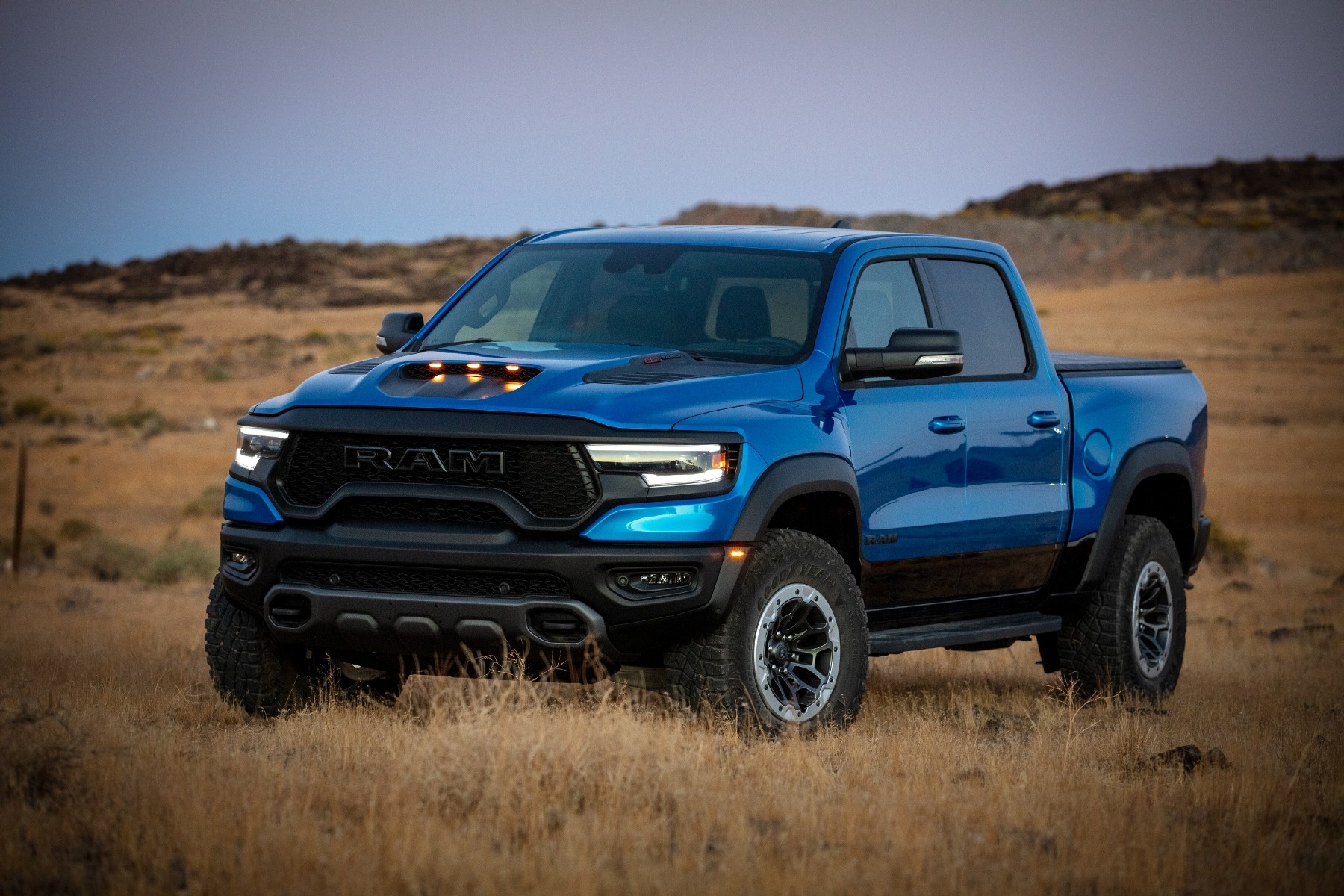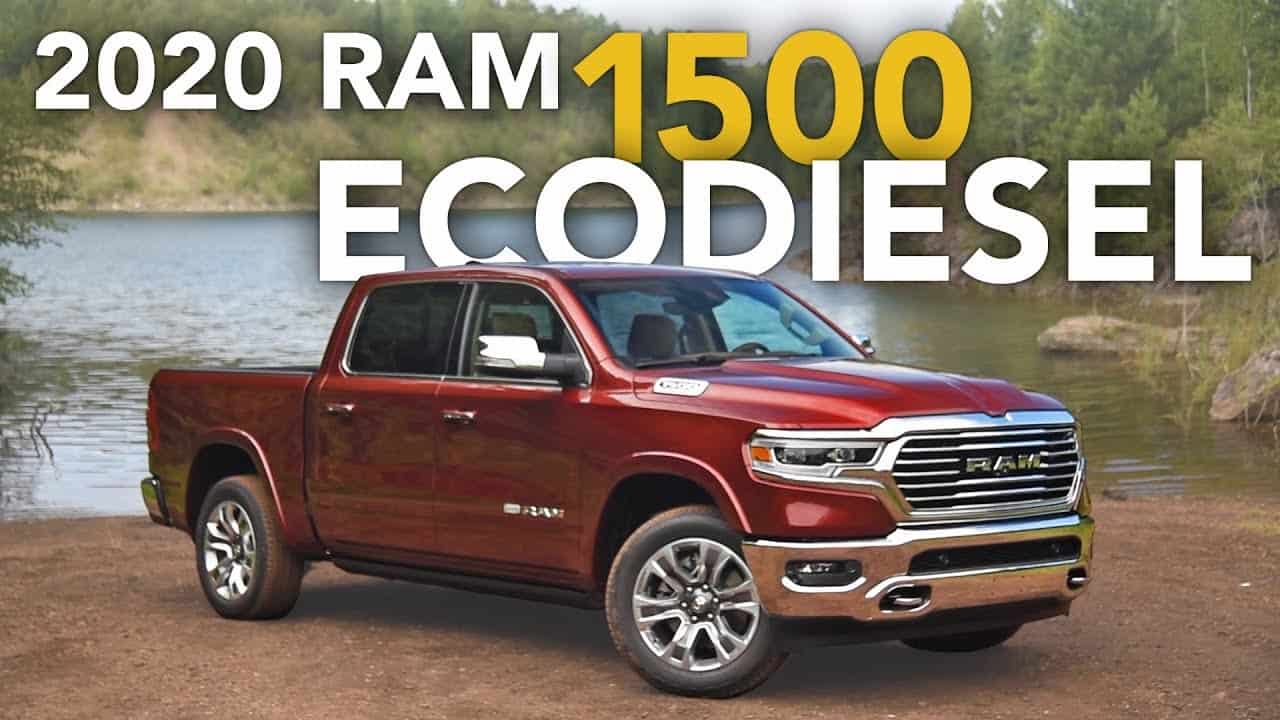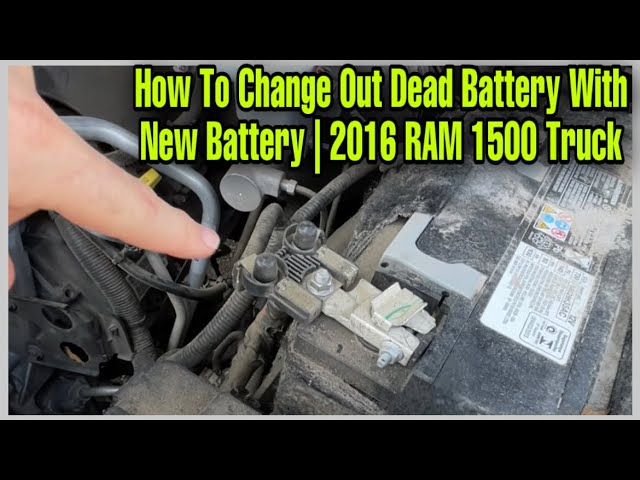Ecodiesel Dodge Ram 1500 For Sale: Your Comprehensive Guide to Buying a Fuel-Efficient Workhorse sale.truckstrend.com
The Ram 1500 has long been a titan in the full-size pickup truck segment, revered for its robust capabilities, comfortable ride, and luxurious interiors. However, for a specific breed of truck buyer, the standard gasoline powertrains left something to be desired: the exceptional fuel efficiency and low-end torque characteristic of a diesel engine. Enter the EcoDiesel Dodge Ram 1500 – a groundbreaking addition that offered an unparalleled blend of light-duty utility with heavy-duty efficiency.
For those in the market for a pre-owned truck that can tow with ease, sip fuel on long hauls, and still provide the comfort and versatility of a half-ton pickup, an EcoDiesel Dodge Ram 1500 for sale presents a compelling proposition. This article serves as your definitive guide, exploring everything from its unique benefits to crucial considerations when purchasing a used model.
Ecodiesel Dodge Ram 1500 For Sale: Your Comprehensive Guide to Buying a Fuel-Efficient Workhorse
Why Choose an EcoDiesel Dodge Ram 1500? The Benefits Unveiled
The EcoDiesel engine, a 3.0-liter V6 developed by VM Motori, fundamentally changed the game for the Ram 1500. Here’s why it stands out:
- Exceptional Fuel Economy: This is arguably the EcoDiesel’s most significant draw. Compared to its gasoline counterparts, the EcoDiesel consistently delivers superior miles per gallon, often reaching into the mid-20s combined, and even breaking 30 MPG on the highway for 2WD models. This translates to significant savings at the pump, especially for high-mileage drivers or those with long commutes.
- Impressive Low-End Torque: Diesel engines are renowned for their torque, and the EcoDiesel is no exception. With a substantial amount of torque available at low RPMs (often exceeding 400 lb-ft), it provides effortless towing and hauling capabilities. This means less downshifting, smoother acceleration, and greater confidence when pulling trailers, boats, or heavy loads.
- Robust Towing and Payload: While maintaining its half-ton classification, the EcoDiesel boosts the Ram 1500’s utility. Depending on the model year and configuration, it can tow well over 9,000 pounds, making it a serious contender for weekend adventurers and those who frequently haul.
- Refined Driving Experience: Unlike the noisy, rough diesels of yesteryear, the EcoDiesel V6 is remarkably quiet and smooth. Its ample torque ensures quick, responsive acceleration, and the engine’s operation is barely noticeable from inside the well-insulated cabin.
- Reduced Emissions (Compared to Older Diesels): Equipped with modern emissions control systems (including Diesel Exhaust Fluid – DEF), the EcoDiesel produces fewer harmful emissions than many older diesel trucks, aligning with contemporary environmental standards.
![]()
Understanding the Generations: First vs. Second Gen EcoDiesel
When searching for an EcoDiesel Ram 1500, it’s crucial to distinguish between the two main generations, as they offer distinct characteristics and potential considerations:
- First Generation (2014-2019):

- Engine: VM Motori 3.0L EcoDiesel V6 (Gen 1)
- Output: Typically 240 horsepower and 420 lb-ft of torque.
- Features: Paired with an 8-speed automatic transmission. These models were groundbreaking for their time, offering the first true light-duty diesel option in the segment.
- Considerations: Early models faced some scrutiny regarding the EGR (Exhaust Gas Recirculation) cooler and oil cooler failures, leading to recalls and extended warranties. Buyers should thoroughly investigate service history for these components.

- Second Generation (2020-Present – for the Ram 1500 DT body style):
- Engine: VM Motori 3.0L EcoDiesel V6 (Gen 2)
- Output: Significantly improved to 260 horsepower and 480 lb-ft of torque.
- Features: Also paired with an 8-speed automatic. This generation benefited from extensive redesigns, including a new turbocharger, intake ports, and an improved EGR system, aiming for enhanced reliability and performance.
- Considerations: Generally considered more robust and refined than the first generation. However, all modern diesels require diligent maintenance, especially regarding the DEF system and DPF (Diesel Particulate Filter). The High-Pressure Fuel Pump (HPFP) has been a point of concern for some owners, particularly in specific model years (though this is not exclusive to Ram’s EcoDiesel).
For buyers with a higher budget, the second-generation EcoDiesel offers noticeable improvements in power, refinement, and potentially long-term reliability due to the engineering updates. However, well-maintained first-generation models can still be excellent value.
Important Considerations When Buying a Used EcoDiesel Ram 1500
Purchasing a used diesel truck requires a more meticulous approach than a gasoline equivalent. Here are key areas to focus on:
- Maintenance History is Paramount:
- Service Records: Demand complete and verifiable service records. Look for consistent oil changes (using the correct low-ash oil specification), DEF fluid top-ups, and filter replacements.
- Recalls and TSBs (Technical Service Bulletins): Verify that all applicable recalls (especially for EGR coolers on Gen 1 models) have been addressed.
- Known Issues and Inspection Points:
- EGR System: On Gen 1 models, inspect for signs of leaks or previous repairs related to the EGR cooler. A properly functioning EGR system is crucial for emissions and engine health.
- HPFP (High-Pressure Fuel Pump): While not universally problematic, some model years (particularly 2020-2022) have seen reports of HPFP failures. Inquire if the pump has been replaced or if there are any signs of fuel system issues. Listen for unusual noises during start-up or acceleration.
- DPF (Diesel Particulate Filter): The DPF is a critical emissions component. If the truck has been primarily used for short trips, the DPF may be clogged or require more frequent regeneration, potentially leading to issues. Check for any DPF-related error codes.
- DEF System: Ensure the DEF tank and lines are free of leaks or crystallization. The DEF system is complex and critical for emissions compliance.
- Underbody Inspection: Look for rust, especially on the frame, brake lines, and suspension components. Check for fluid leaks (oil, coolant, DEF).
- Engine Bay: Look for any signs of tampering, aftermarket modifications (especially "deletes" which are illegal for road use and can cause serious issues), or poor repair work.
- Mileage vs. Condition:
- Diesel engines are known for their longevity, often lasting hundreds of thousands of miles. High mileage isn’t necessarily a deal-breaker if the truck has been meticulously maintained.
- Conversely, a low-mileage EcoDiesel might indicate it was used for short trips, which can be harder on a diesel’s emissions system.
- Pre-Purchase Inspection (PPI):
- This is non-negotiable. Have a qualified independent mechanic, ideally one specializing in diesel engines, perform a thorough inspection. They can identify potential issues that an untrained eye might miss, check for fault codes, and assess the overall health of the engine and drivetrain.
How to Find and Evaluate an EcoDiesel Ram 1500 For Sale
Finding your ideal EcoDiesel requires a systematic approach:
- Where to Look:
- Online Marketplaces: Websites like AutoTrader, Cars.com, CarGurus, and even Facebook Marketplace are excellent starting points. Filter by fuel type (diesel) and specific model.
- Dealerships: Both Ram dealerships and independent used car lots will have EcoDiesel models. Dealerships often offer certified pre-owned (CPO) options with warranties, though at a higher price.
- Private Sellers: Often offer lower prices but come with more risk. Be extra diligent with inspections and verification.
- What Questions to Ask the Seller:
- "Can you provide all service records since new?"
- "What kind of driving was the truck primarily used for (city, highway, towing)?"
- "Has it ever had any engine or transmission work done?"
- "Are there any active warning lights or messages?"
- "Has the EGR cooler or HPFP ever been replaced?" (Specify Gen 1 or 2 as appropriate)
- "Why are you selling the truck?"
- The Test Drive Checklist:
- Cold Start: Listen for any unusual noises (knocks, rattles, excessive smoke).
- Acceleration: Check for smooth power delivery and proper shifting through all gears.
- Braking: Ensure brakes are firm and responsive, with no pulling.
- Steering: Check for play, vibrations, or unusual noises.
- Highway Driving: Pay attention to engine temperature, noise levels, and overall stability at speed. Engage cruise control to see if it holds speed consistently.
- Emissions System: If possible, drive long enough to allow a DPF regeneration cycle to occur (you might notice a slight change in engine note or smell).
- VIN Check:
- Use the VIN (Vehicle Identification Number) to get a vehicle history report from services like CarFax or AutoCheck. This will reveal accident history, odometer discrepancies, service history reported by dealerships, and recall completion status.
Tips for Ownership and Longevity of Your EcoDiesel
Once you’ve acquired your EcoDiesel, proactive maintenance is key to enjoying its benefits for years to come:
- Use the Correct Oil: EcoDiesel engines require specific low-ash, synthetic engine oil (MS-11106 specification, typically 5W-40 or 5W-30 depending on year/region). Using the wrong oil can damage the DPF and other emissions components.
- Proper DEF Fluid Usage: Only use certified Diesel Exhaust Fluid (ISO 22241). Do not let the DEF tank run dry, as this will limit engine power and prevent the truck from restarting.
- Allow DPF Regeneration: Understand how your truck’s DPF system works. If you primarily do short trips, occasionally take the truck on a longer highway drive to allow the DPF to complete a regeneration cycle.
- Regular Fuel Filter Changes: Diesel engines are sensitive to fuel quality. Change your fuel filters (often two: primary and secondary) according to the manufacturer’s schedule, or more frequently if you suspect poor fuel quality.
- Warm-Up and Cool-Down: Allow the engine to warm up before heavy use and cool down for a minute or two after heavy towing or highway driving before shutting it off.
Potential Challenges and Solutions
While the EcoDiesel offers significant advantages, it’s important to be aware of potential challenges:
- Higher Maintenance Costs: Diesel maintenance, while less frequent for some items, can be more expensive per service than gasoline engines due to specialized fluids, filters, and labor.
- Solution: Budget accordingly for maintenance. Consider purchasing an extended warranty if available and reputable.
- Emissions System Complexity: The DEF and DPF systems are intricate and can be costly to repair if they malfunction.
- Solution: Adhere strictly to maintenance schedules, use correct fluids, and avoid aftermarket "delete" kits, which are illegal and can ruin the engine.
- Finding Qualified Mechanics: Not all mechanics are experienced with modern diesel engines and their complex emissions systems.
- Solution: Research and identify reputable independent shops or Ram dealerships with experienced diesel technicians in your area before you need major service.
Ecodiesel Dodge Ram 1500 For Sale: Estimated Price Range
The price of a used EcoDiesel Ram 1500 varies significantly based on model year, mileage, trim level, condition, and geographic location. The table below provides a general estimated range for models typically found on the used market. These are estimates only and can fluctuate widely.
| Model Year | Trim Level (Common Examples) | Mileage Range (Approx.) | Condition | Estimated Price Range (USD) | Notes |
|---|---|---|---|---|---|
| 2014-2016 | Tradesman, Big Horn, Laramie | 100,000 – 180,000+ | Fair – Good | $15,000 – $25,000 | Early Gen 1 models; check EGR/oil cooler recall status. |
| 2017-2019 | Big Horn, Laramie, Rebel, Limited | 70,000 – 150,000 | Good – Excellent | $20,000 – $35,000 | Later Gen 1 models; generally more refined. |
| 2020-2021 | Big Horn, Laramie, Rebel, Limited | 40,000 – 90,000 | Very Good – Excellent | $35,000 – $50,000 | Early Gen 2 models; improved power/torque; check HPFP history. |
| 2022-2023 | Big Horn, Laramie, Rebel, Limited | 15,000 – 50,000 | Excellent – Like New | $45,000 – $65,000+ | Latest Gen 2 models; premium pricing for low mileage. |
Note: Prices can be higher for trucks with desirable options (e.g., panoramic sunroof, air suspension, advanced safety tech) or lower for trucks with significant cosmetic or mechanical issues.
Frequently Asked Questions (FAQ) about the EcoDiesel Ram 1500
Q1: Is the EcoDiesel Ram 1500 reliable?
A1: Reliability can be good if the truck has been properly maintained. Early Gen 1 models had some known issues (EGR cooler, oil cooler) addressed by recalls. Gen 2 models are generally more reliable but still require diligent maintenance, particularly for the HPFP and emissions systems. A comprehensive pre-purchase inspection is highly recommended.
Q2: What is DEF fluid and how often do I need to add it?
A2: DEF (Diesel Exhaust Fluid) is a liquid consumed by the Selective Catalytic Reduction (SCR) system to reduce nitrogen oxide emissions. Consumption varies based on driving habits and conditions, but typically you’ll need to refill the DEF tank every 5,000-10,000 miles.
Q3: What are the common problems with the EcoDiesel engine?
A3: For Gen 1 (2014-2019), common issues included EGR cooler and oil cooler failures. For Gen 2 (2020-present), some owners have reported issues with the High-Pressure Fuel Pump (HPFP). Both generations require proper maintenance of the DPF and DEF systems to prevent costly repairs.
Q4: What kind of fuel economy can I expect?
A4: Fuel economy is a major highlight. Depending on the model year, drivetrain (2WD vs. 4WD), and driving conditions, you can expect anywhere from 20-23 MPG combined, with highway mileage often reaching 26-32 MPG.
Q5: Can the EcoDiesel Ram 1500 tow heavy loads?
A5: Absolutely. With its significant low-end torque (420-480 lb-ft), the EcoDiesel is an excellent tow vehicle for a half-ton truck. Depending on configuration, it can tow well over 9,000 pounds, making it suitable for many recreational trailers, boats, and small campers.
Q6: Should I buy a 1st Gen or 2nd Gen EcoDiesel?
A6: If your budget allows, the 2nd Gen (2020+) offers more power, improved refinement, and generally better reliability due to engineering updates. However, a well-maintained 1st Gen can still be a great value, especially if its recalls have been addressed and it has a documented service history.
Conclusion
The EcoDiesel Dodge Ram 1500 represents a unique and highly capable option in the used truck market. Its impressive fuel efficiency, substantial towing capability, and refined driving experience make it an attractive choice for those who need truck utility without the typical gasoline thirst. While modern diesel engines come with their own set of maintenance considerations and potential challenges, a thorough pre-purchase inspection, diligent adherence to service schedules, and an understanding of its specific needs can lead to years of reliable and economical performance. By arming yourself with the knowledge presented in this guide, you can confidently navigate the market for an EcoDiesel Ram 1500 for sale and find a workhorse that perfectly suits your needs.




